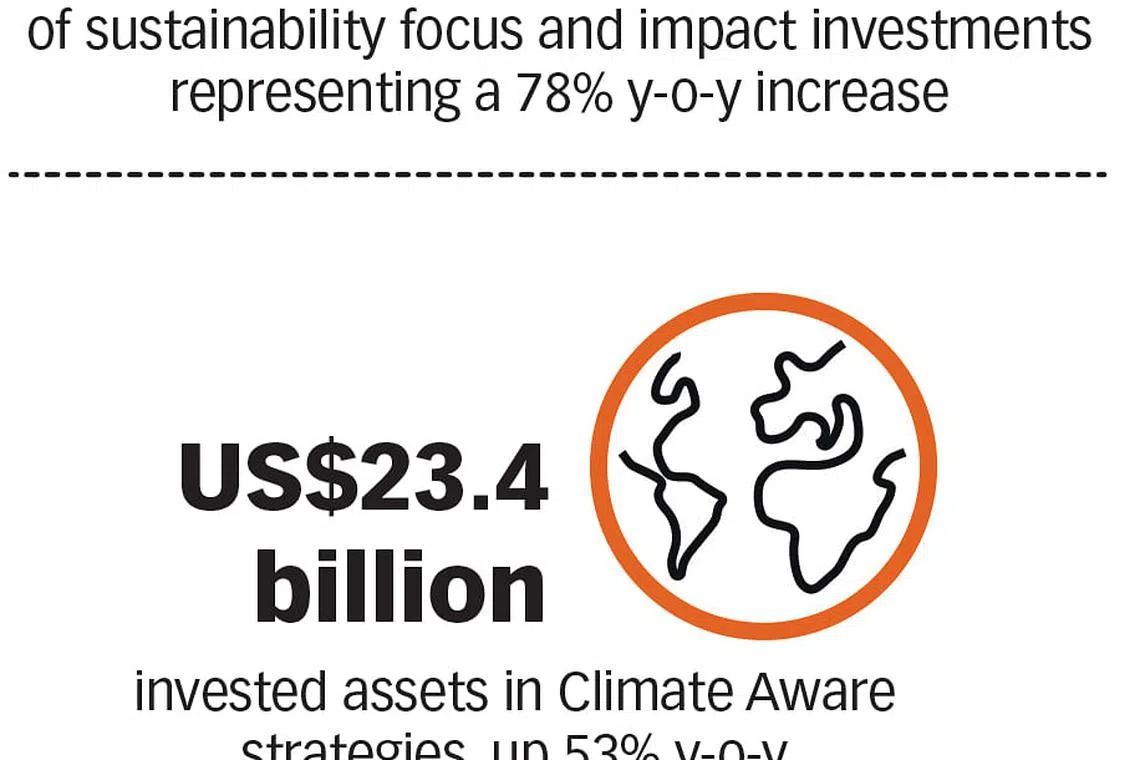Turning sustainability commitments into action
Transition to net zero, climate tech innovations and carbon markets took centrestage at the UBS APAC Sustainable Finance Conference 2022
SUSTAINABILITY continues to be front-of-mind for investors amid the current geopolitical situation.
In fact, green projects have become more attractive economically, amid ongoing high prices for fossil fuel-based energy sources.
Edmund Koh, UBS's Asia Pacific President, says: "At UBS, we have been collaborating with our clients on their sustainable finance needs for over two decades. We are focused on providing clients with advice, products and solutions they need to achieve their goals as the world moves towards a low-carbon future. In 2021, we achieved a 78 per cent increase in our sustainability-focus and impact investments to US$251 billion globally."
Three out of 4 investors polled in the Swiss private bank's latest global Investor Sentiment Survey are optimistic that there would be greater investments into the green technology sector.
This is in line with what the bank has observed among investors in the Asia Pacific, said Desmond Kuek, UBS Head of Sustainable Finance Asia Pacific and Global Head of Sustainable Finance Group.
Private clients in Asia Pacific are increasingly preferring the bank's sustainable investing cross-asset discretionary mandate. Its flagship sustainable multi-asset portfolios have more than doubled last year to US$5.4 billion, with almost 1 in 5 clients invested.
BT in your inbox

Start and end each day with the latest news stories and analyses delivered straight to your inbox.
Some 7 in 10 of the bank's clients in Asia are entrepreneurs, who have found that sustainable investments can generate "equal or superior investment returns" when compared to traditional investments, said Kuek, who was speaking on the sidelines of UBS's Asia Pacific Sustainable Finance Conference.
Despite the ongoing global geopolitical situation, Kuek said the longer-term shift to decarbonisation remains intact.
"The net-zero carbon transition will continue to be one of the most consequential investment trends of the coming decade. And investors should continue to take a longer-term view on the energy transition and sustainability, more broadly," he says.

Picking up speed toward Net Zero
The conference held on May 12 brought together 1,000 investors, corporate leaders and ESG (environmental, social and governance) thought leaders together from across Asia. It centered on key themes such as the transition to net-zero, climate tech innovations, carbon markets, as well as biodiversity and impact investing.
Key speakers included former Executive Secretary of the UN Framework Convention on Climate Change Christiana Figueres, UBS Group's Chief Sustainability Officer Michael Baldinger, as well as former Unilever CEO and Co-Author of Net Positive, Paul Polman.
In a panel at the conference, Baldinger noted how the Russia-Ukraine crisis has fuelled a quest across countries, particularly across Europe, toward energy independence. He believes that there will be a much greater acceleration toward net zero as countries "increasingly recognise that the drivers that create national securityare, in fact, the same drivers that deliver the net zero transition".
"We have to think regenerative, restorative, reparative," Polman said.
In fact, companies that are less exposed to carbon have a higher valuation, he said, adding that those driven by a "higher purpose" attract better employees, have a more motivated workforce, and foster greater resilience in their value chains.
Separately, Figueres spoke at a fireside chat moderated by Suni Harford, President of UBS Asset Management, UBS Group Executive Board sponsor for Sustainability and Impact.
Among other things, Figueres noted that when it comes to addressing climate issues, one should have "stubborn optimism", which is not about the result of achieving something, but the courageous daily choice one makes despite knowing that one is up against all odds.
Key themes in Asia
For UBS, one key area of growth is Asia's sustainable bond market. Kuek noted that the total ESG bond issuance in Asia Pacific amounted to US$118 billion in 2021, surpassing that raised in 2019 and 2020.
UBS investment bank achieved over 40 ESG bond deals in Asia Pacific last year. Earlier this year, UBS acted as one of two joint sustainability structuring advisers on the Republic of Philippines' US$2.25 billion three tranche bond that also included the sovereign's debut sustainability bond.
The bank also continues to see green technology investment opportunities in select China and Japanese companies, particularly in areas like renewable energy, transport, batteries, hydrogen, and digitalisation.
In the renewable energy space, solar and wind are expected to attract the most attention from governments across the region. By 2030, Asia Pacific is likely to become one of the biggest offshore wind markets. Kuek notes that China today is already leading the renewables production space.
UBS has extended its sustainability leadership with growth in invested assets and advancements in its climate strategy, Kuek says.
"We are seeing significant growth in ESG awareness from companies and investors here in Asia Pacific. With our Sustainable Finance Conference and the very positive turnout, we continue to bring together our subject matter experts, key thought leaders, clients and partners to look into solving today's challenges with tomorrow's solutions," he says.
Copyright SPH Media. All rights reserved.
